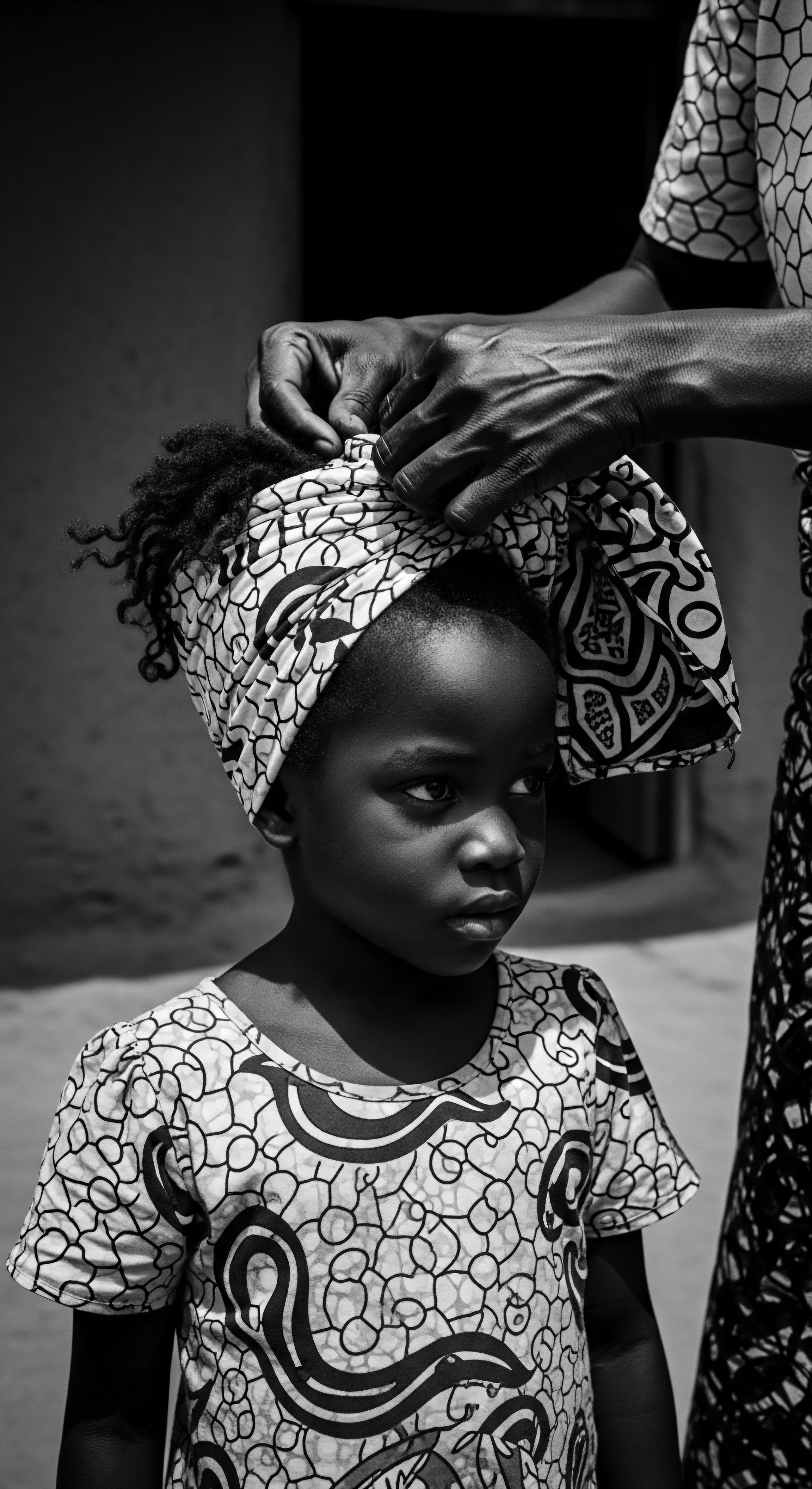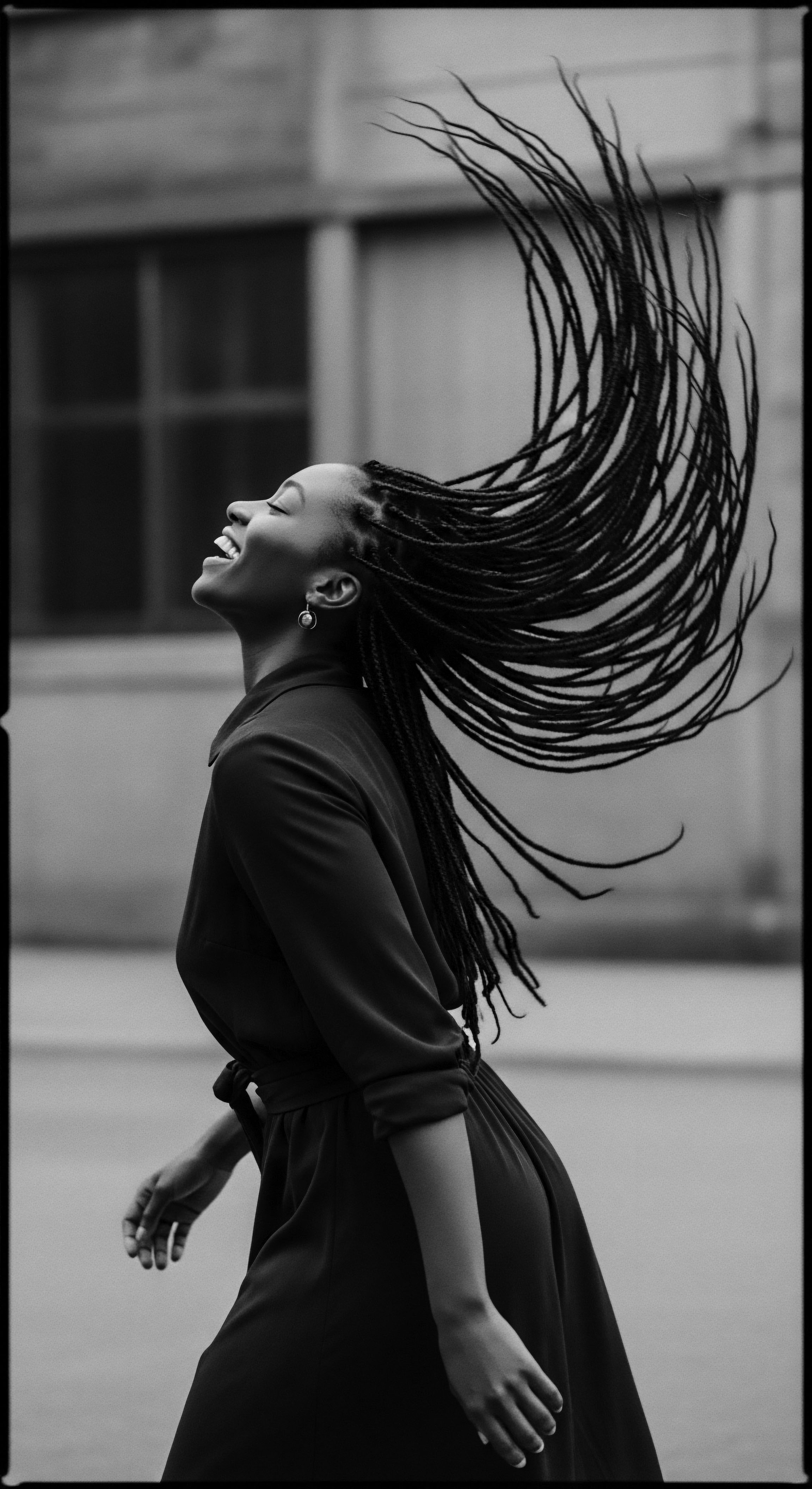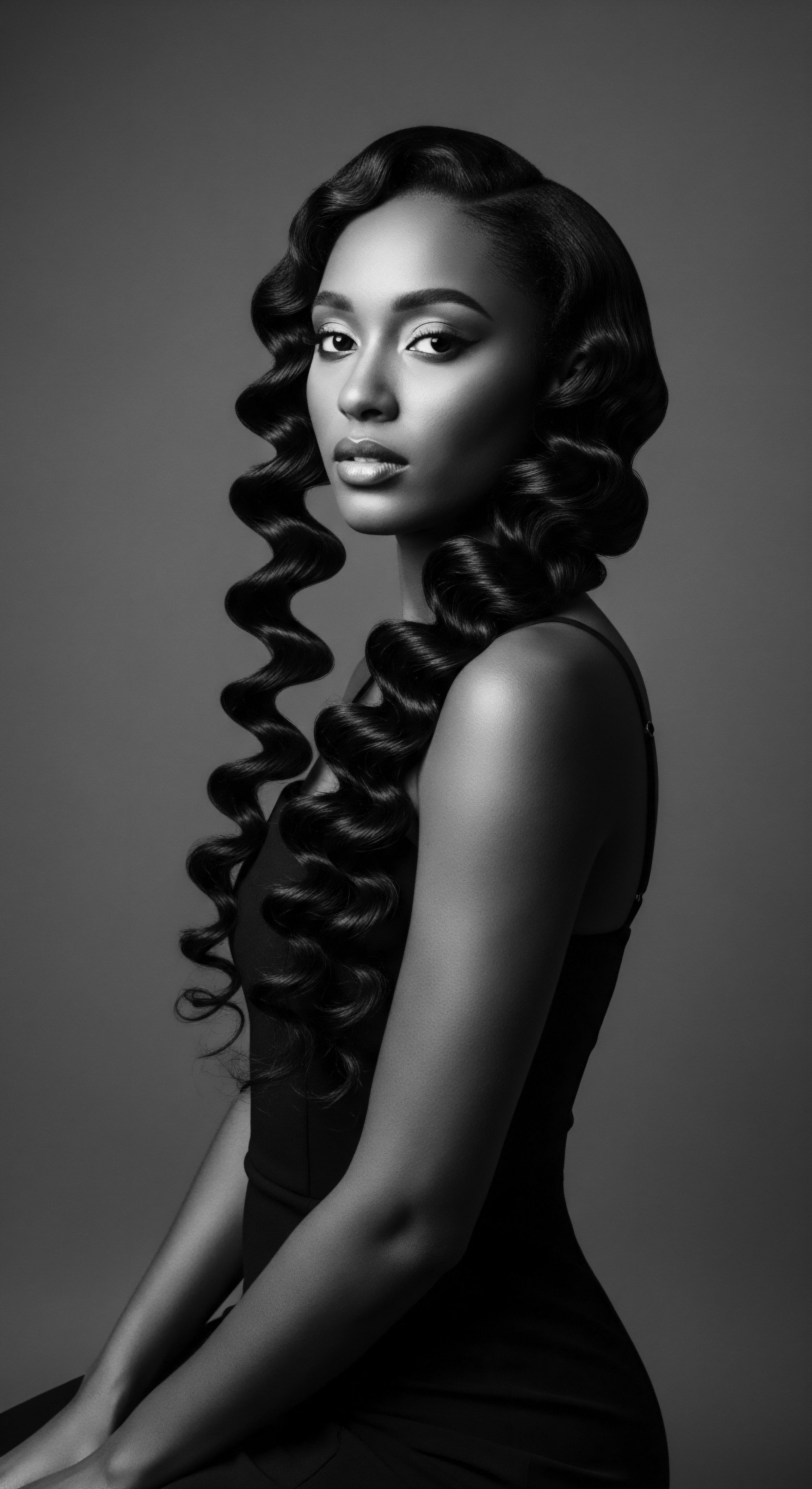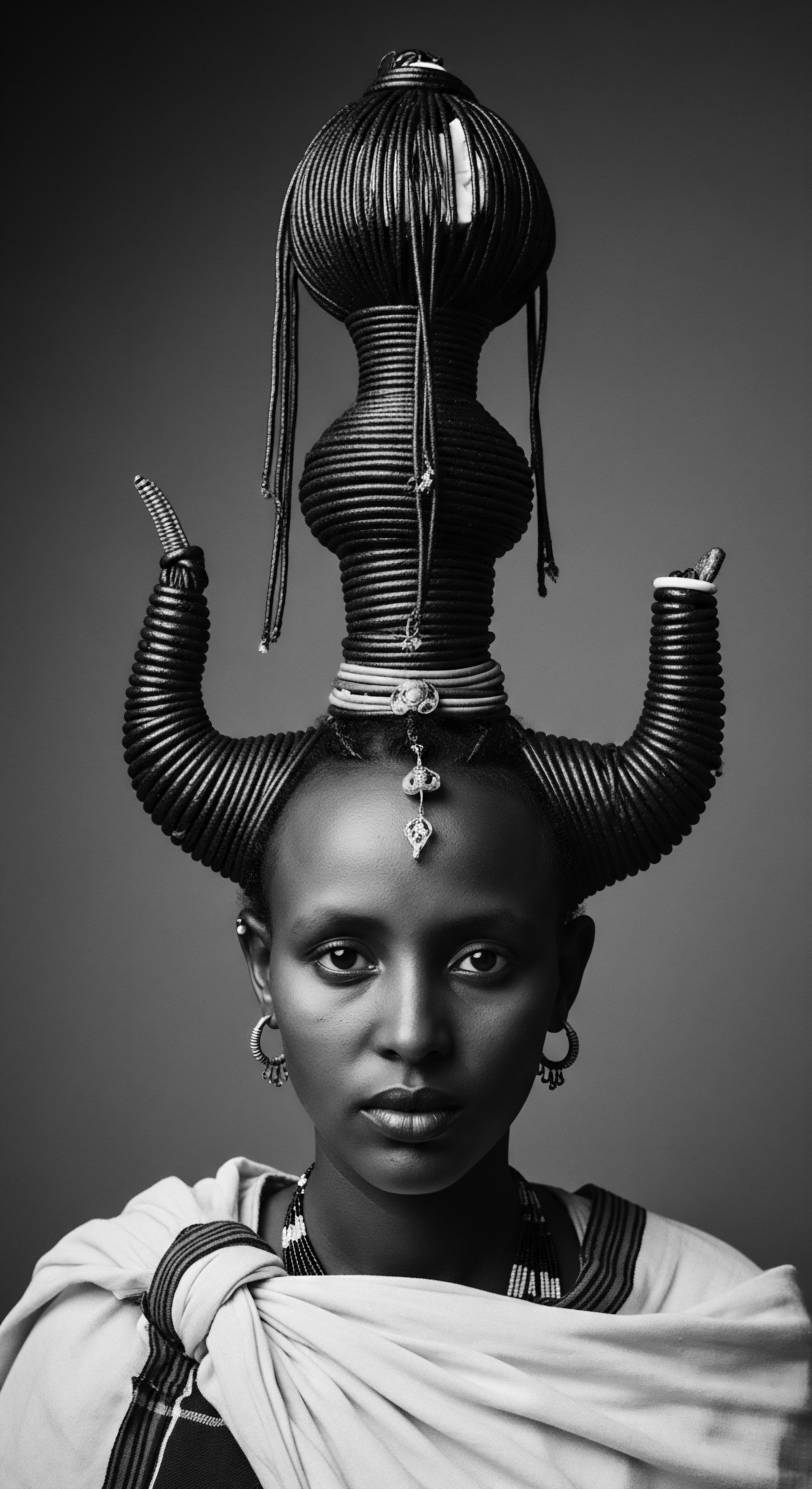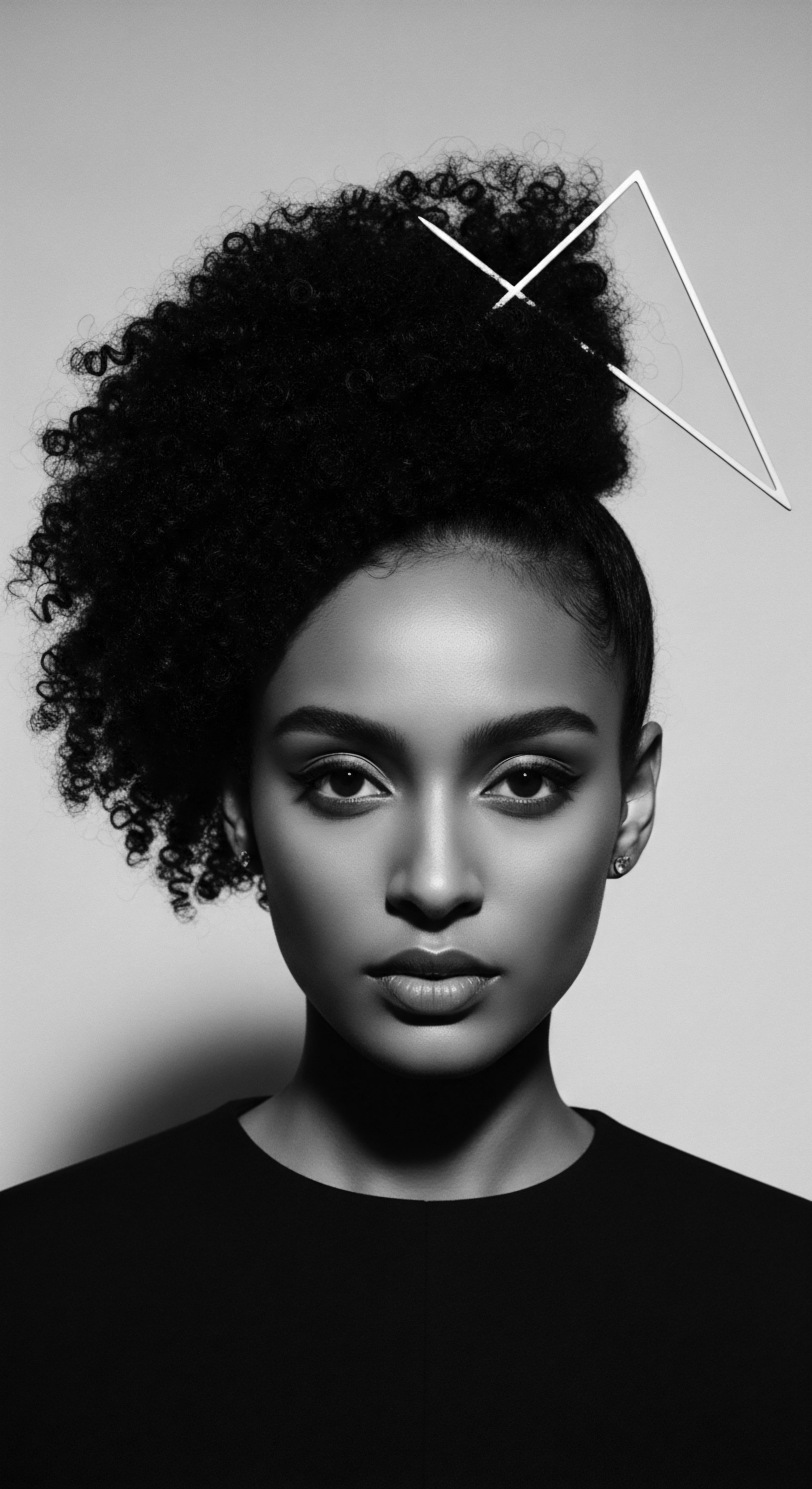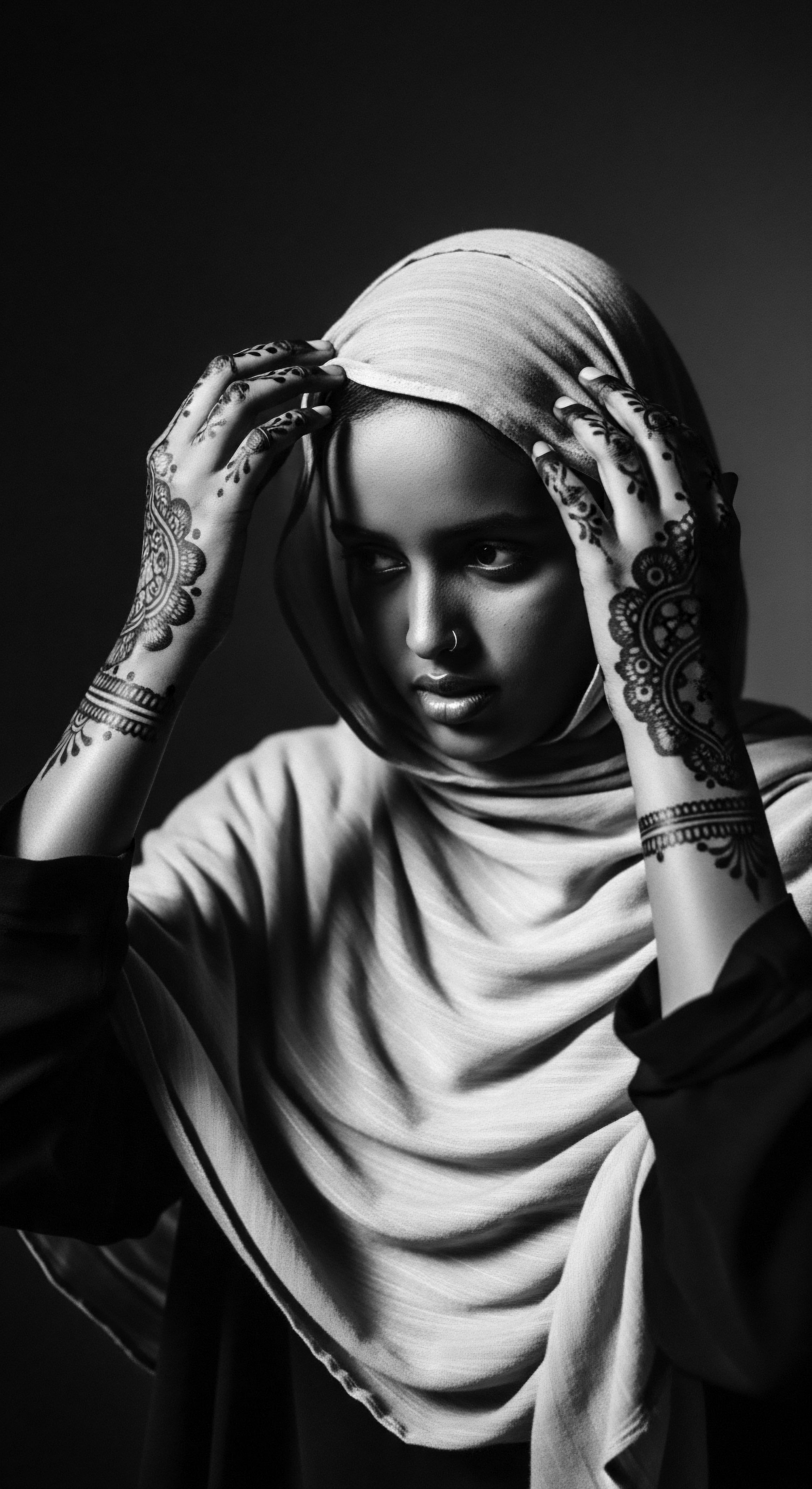
Fundamentals
The core meaning of Cultural Identity Nigeria unfolds as a rich tapestry woven from the diverse threads of over 250 ethnic groups, each contributing to a collective consciousness. It speaks to the shared values, ancestral wisdom, artistic expressions, and lived experiences that define the Nigerian spirit, a spirit undeniably tied to the very strands of its people’s hair. This identity, a dynamic entity, continuously shapes itself through the echoes of ancient traditions, the enduring wisdom of communal practices, and the profound resilience forged through historical currents. Hair, within this intricate cultural fabric, transcends simple adornment; it becomes a chronicle, a living archive of lineage and belonging.
From the earliest known chronicles, the way hair was tended, adorned, and revered in the lands that would become Nigeria provided a profound declaration of identity. Every coil, every braid, every intricate style communicated volumes: social standing, marital status, age, community affiliation, even spiritual connection. These were not arbitrary choices, but deeply rooted expressions of a coherent cultural language, understood and transmitted across generations. The hair, therefore, served as an elemental conduit, a direct link between the individual and the wider ancestral heritage, a visual lexicon for the soul’s deep-seated belonging.
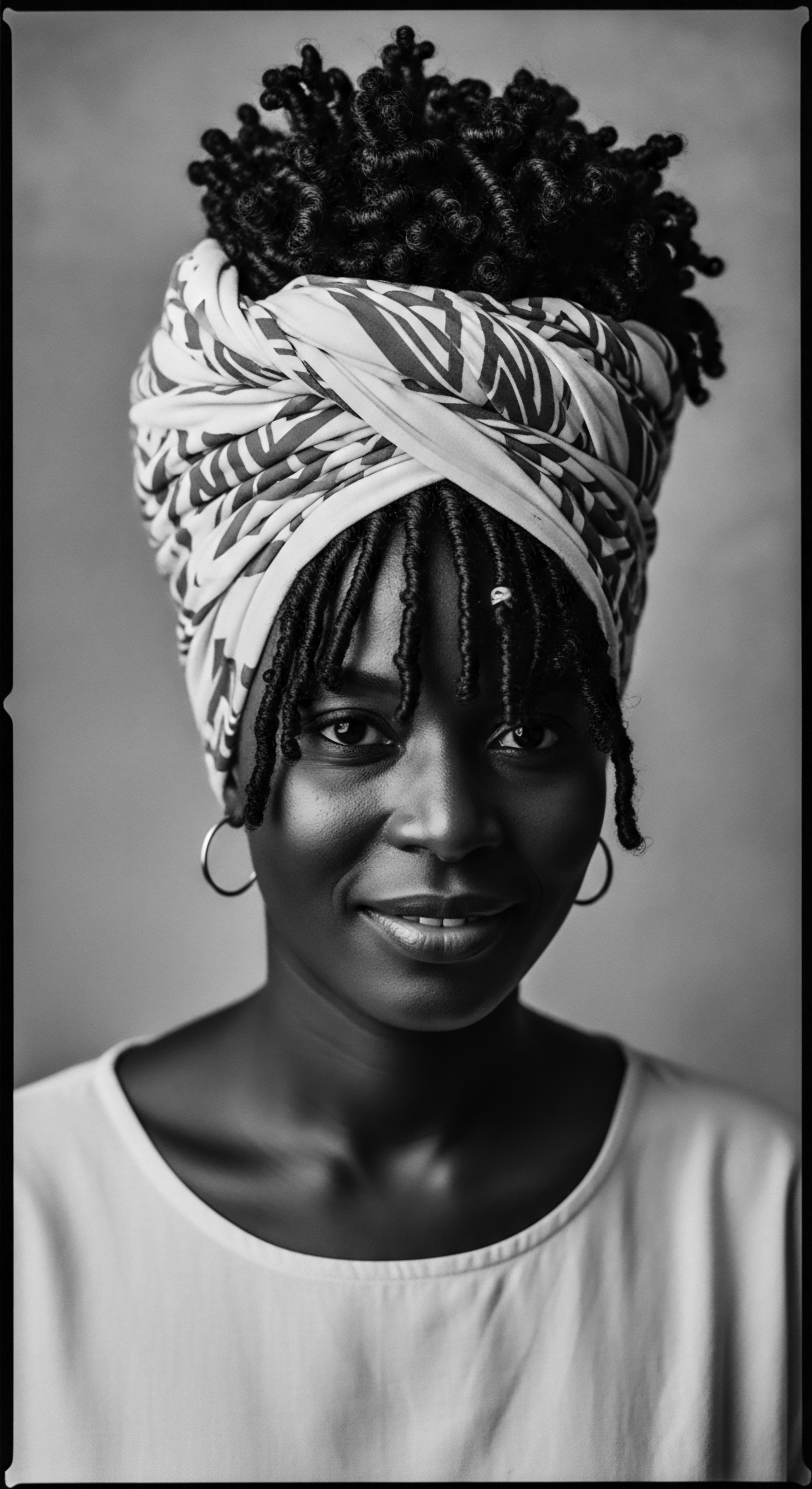
Early Expressions: The Coil as Chronicle
The primordial understanding of hair in these ancestral lands was profound, reaching beyond the superficial. Hair was perceived as an extension of the soul, a spiritual antenna, holding an inherent connection to the divine. This belief underpinned daily care rituals, transforming mundane acts into sacred practices. The very structure of textured hair ❉ its unique curl patterns, its strength, its ability to hold intricate forms ❉ was celebrated, mirroring the natural beauty of the land and the resilience of its people.
Hair in Nigeria is a living archive, embodying ancestral wisdom, social status, and spiritual connection across diverse ethnic traditions.
Communities devised ingenious methods to care for and style their hair, utilizing indigenous botanicals and natural elements long before the advent of modern cosmetic science. These practices, passed down orally and through direct apprenticeship, formed the bedrock of hair wellness. The knowledge held within these rituals speaks to an elemental connection with the earth, a recognition of its bounty as a source of deep nourishment for both body and spirit.
- Shea Butter (Ori) ❉ A cornerstone of traditional hair care, revered for its emollient properties and deep moisturizing capabilities, protecting strands from the harsh sun and imparting a healthy sheen.
- Palm Kernel Oil (Adin) ❉ Often used for its conditioning and strengthening attributes, believed to stimulate growth and improve hair elasticity.
- Black Soap (Ose Dudu) ❉ A gentle cleansing agent, handcrafted from plantain skins and other natural materials, it purified the scalp without stripping its vital oils.
- Kano Dye (Adire) ❉ While primarily for textiles, the art of dyeing hair with natural pigments, such as indigo, existed for specific ceremonial or aesthetic purposes, especially in Northern regions.
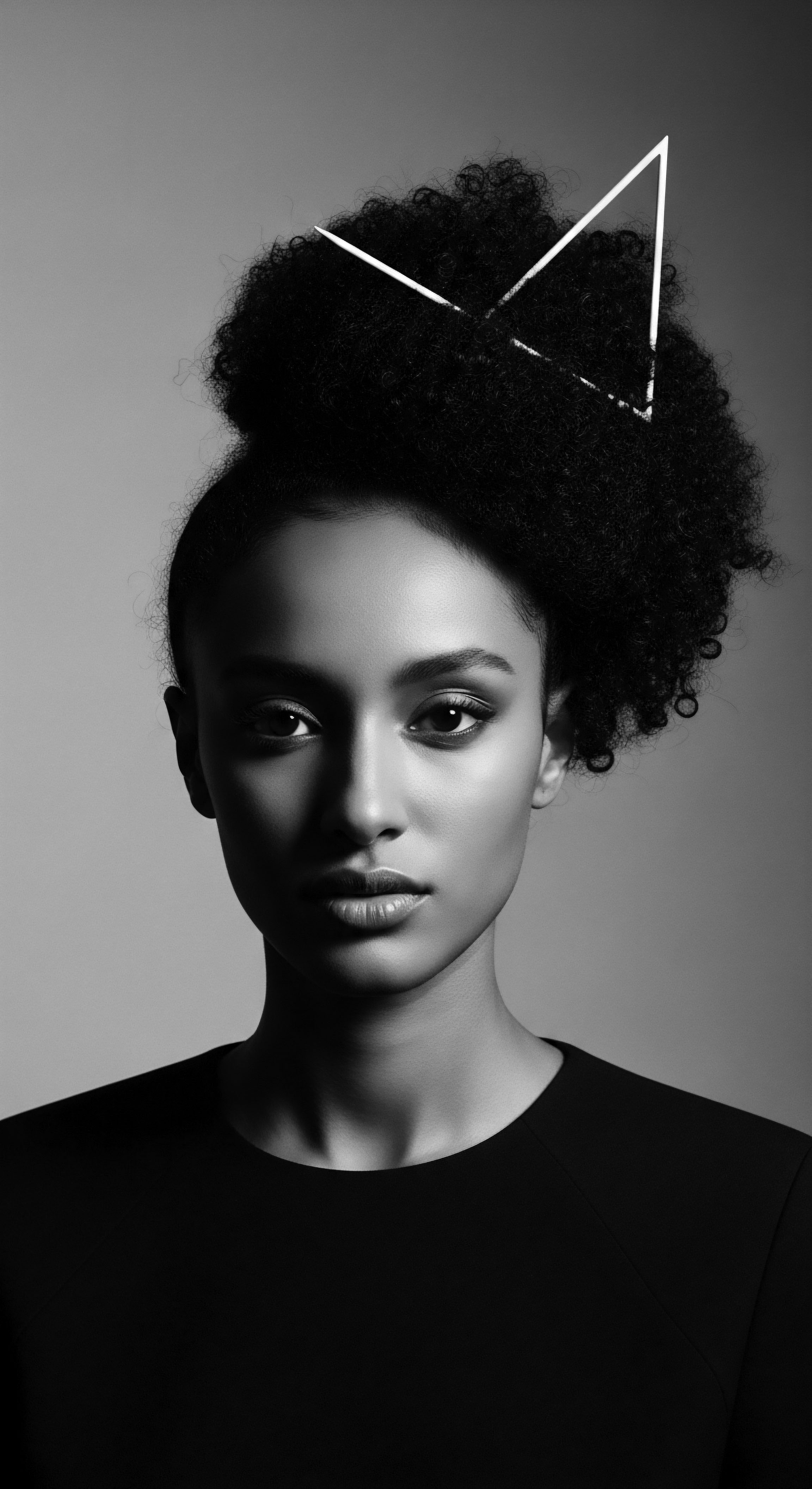
Intermediate
The Cultural Identity Nigeria, in its more complex interpretation, represents the dynamic interplay between the inherited legacies of its diverse peoples and the continuous adaptations shaped by history and societal shifts. It encompasses not just what is visibly expressed, such as hair traditions, but also the deep-seated meaning and significance embedded within these practices. This understanding transcends a simple descriptive statement, delving into the very essence of how communities define themselves and their place in the world through shared cultural markers, particularly the profound ways in which textured hair serves as a mnemonic device for collective memory and ongoing self-expression.
Across the vast expanse of Nigeria, a symphony of cultures vibrates with distinct rhythms, each contributing unique melodic lines to the overarching composition of national identity. The Yoruba, Igbo, Hausa, Edo, Fulani, Ijaw, Tiv, and countless others, bring forth their own rich traditions of hair artistry. These traditions, far from being mere superficial differences, represent profound distinctions in worldview, social organization, and aesthetic values.
The styles, tools, and rituals associated with hair care among these groups reveal an astonishing depth of creativity and a sophisticated understanding of adornment as a language. The various ethnic practices around hair therefore offer a powerful lens through which to comprehend the kaleidoscopic nature of Nigeria’s collective self.
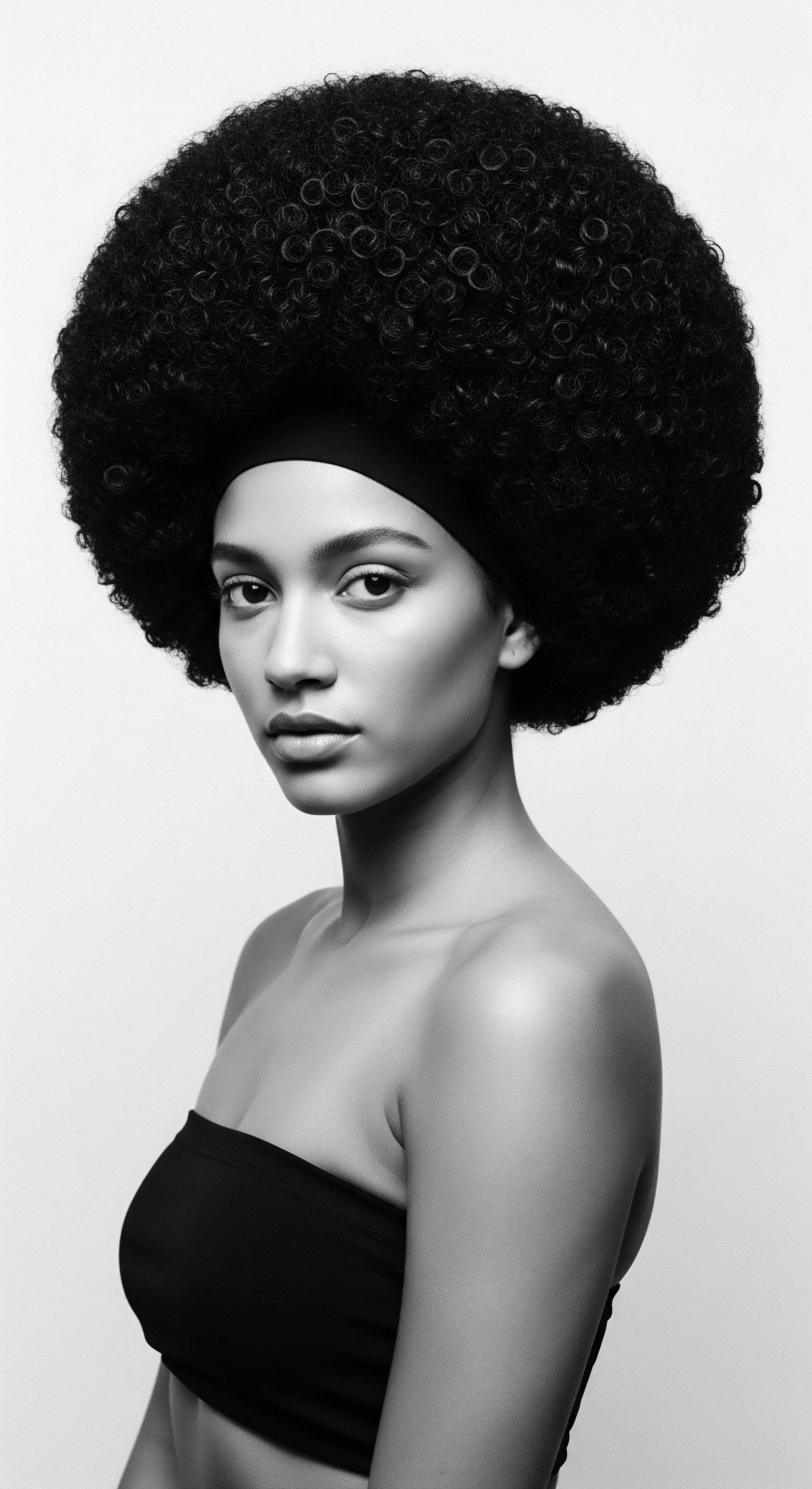
Regional Variations: Hair as Communication
Within Nigeria’s vibrant landscape, each ethnic group cultivated unique hair traditions that served as intricate forms of non-verbal communication. Among the Yoruba, elaborate braiding patterns known as ‘irun kiko’ or ‘shuku’ often denoted social standing, marital status, or even participation in specific ceremonies. A newlywed woman might wear a distinct style, signaling her new role, while a widow’s hair would reflect her period of mourning.
These styles were carefully crafted, often taking hours, and serving as communal bonding experiences. The expertise required to create these intricate patterns speaks to a highly developed craft, passed down through generations, often within families.
For the Igbo people, hair held profound spiritual significance. Styles such as the ‘okuku’, a majestic coiffure often adorned with beads, coral, or cowrie shells, was typically worn by titled men and women, signifying leadership and spiritual authority. The act of adorning the hair with cowries, which once served as currency, also spoke to economic standing and prosperity. The meticulous care of hair in Igbo society reflected a reverence for the body as a vessel for the spirit, and for hair as a channel connecting the earthly realm to ancestral forces.
Hair styles within Nigerian communities communicate intricate social codes and spiritual connections.
In the Northern regions, particularly among the Hausa and Fulani, hair traditions often incorporated intricate cornrows and elaborate extensions using natural fibers. For Fulani women, the signature long, braided styles, often adorned with cowrie shells, amber, and silver coins, indicated wealth, status, and beauty. The application of Henna, or ‘lali’, also played a significant role, not only for its aesthetic appeal but also for its cooling and protective properties, especially in arid climates. These practices underscored a deep connection to lineage and a celebration of feminine beauty rooted in ancestral practices.
- Yoruba ❉ Styles like ‘Suku’ (basket-like), ‘Patewo’ (clapping hands), and ‘Kolese’ (no legs) conveyed marital status, age, or specific rites of passage.
- Igbo ❉ Coiffures such as ‘Mgbafli’ or ‘Okuku’, often adorned with beads or shells, indicated leadership, spiritual power, or familial lineage.
- Hausa/Fulani ❉ Long, slender braids, often with extensions of natural fibers and adorned with cowrie shells or silver, signified beauty, wealth, and tribal affiliation.
- Edo ❉ Elaborate updos and intricate weaving patterns, frequently decorated with coral beads, were worn by royalty and high-ranking individuals during ceremonies.
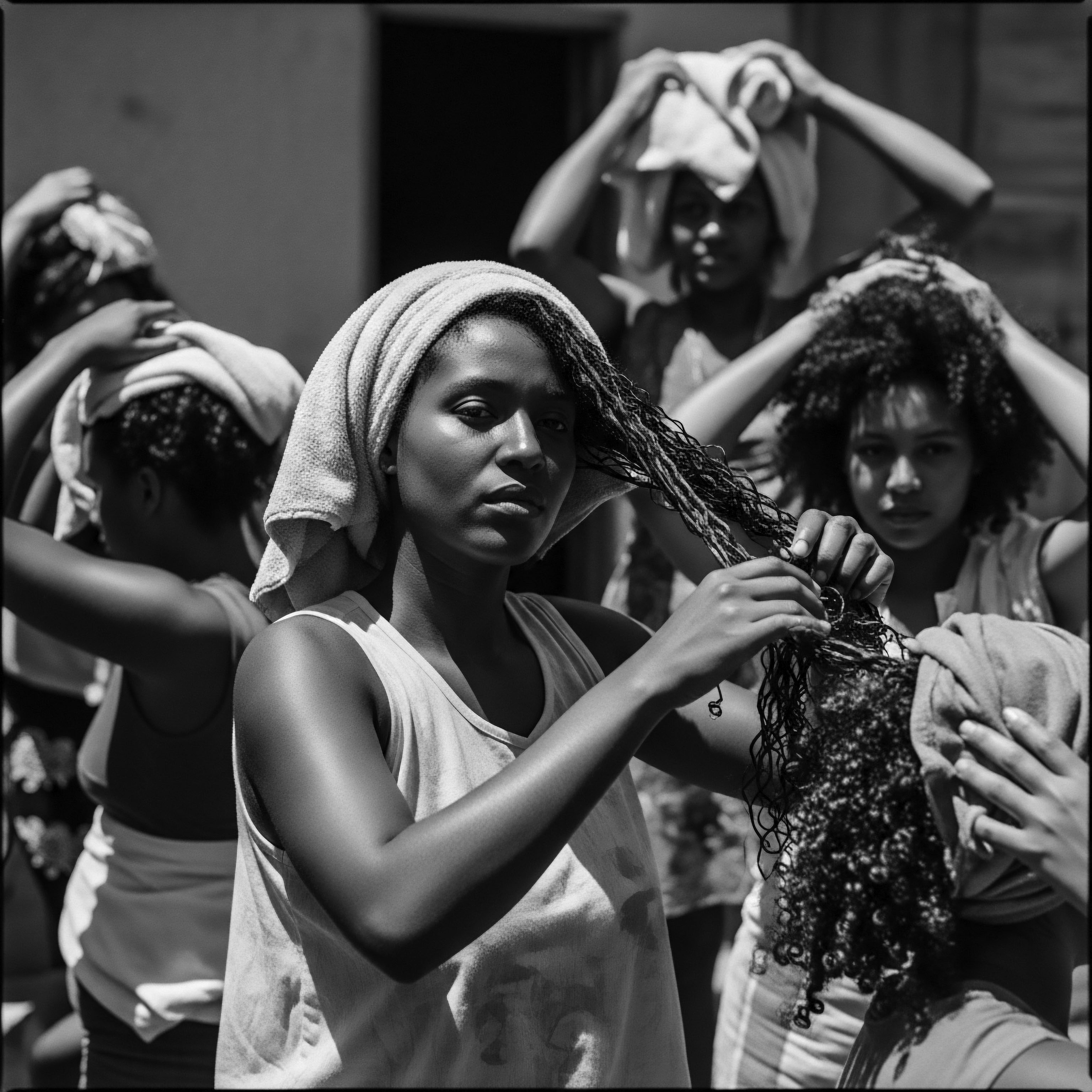
Academic
The academic delineation of Cultural Identity Nigeria requires a rigorous investigation into its anthropological, sociological, and historical dimensions, particularly through the revealing lens of textured hair. This scholarly interpretation moves beyond superficial descriptions, positing that hair serves as a profound semiotic system, a dynamic cultural artifact that both reflects and shapes collective and individual understandings of self. The very meaning of this identity is therefore inextricably linked to the ways inibilities are embodied, performed, and perceived through the complex interplay of biological heritage, cultural production, and historical coercion. This perspective acknowledges the inherent resilience of Nigerian cultural forms, even in the face of external pressures.
To comprehend the full scope of Cultural Identity Nigeria in an academic context, one must consider its genesis in pre-colonial societal structures, its complex transformations during and after colonial imposition, and its continued re-articulation in contemporary globalized spaces. Hair, in this framework, stands as a locus of power, memory, and resistance. It has been a canvas for intricate social coding, a medium for spiritual connection, and often, a battleground for self-determination.
The ongoing discourse around natural hair in Nigeria and among its diaspora speaks directly to this continuing struggle for self-definition against the backdrop of imposed aesthetic norms and historical subjugation. The essence of this cultural identity is a living, breathing testament to the enduring human spirit, finding voice through the unique helix of its hair.
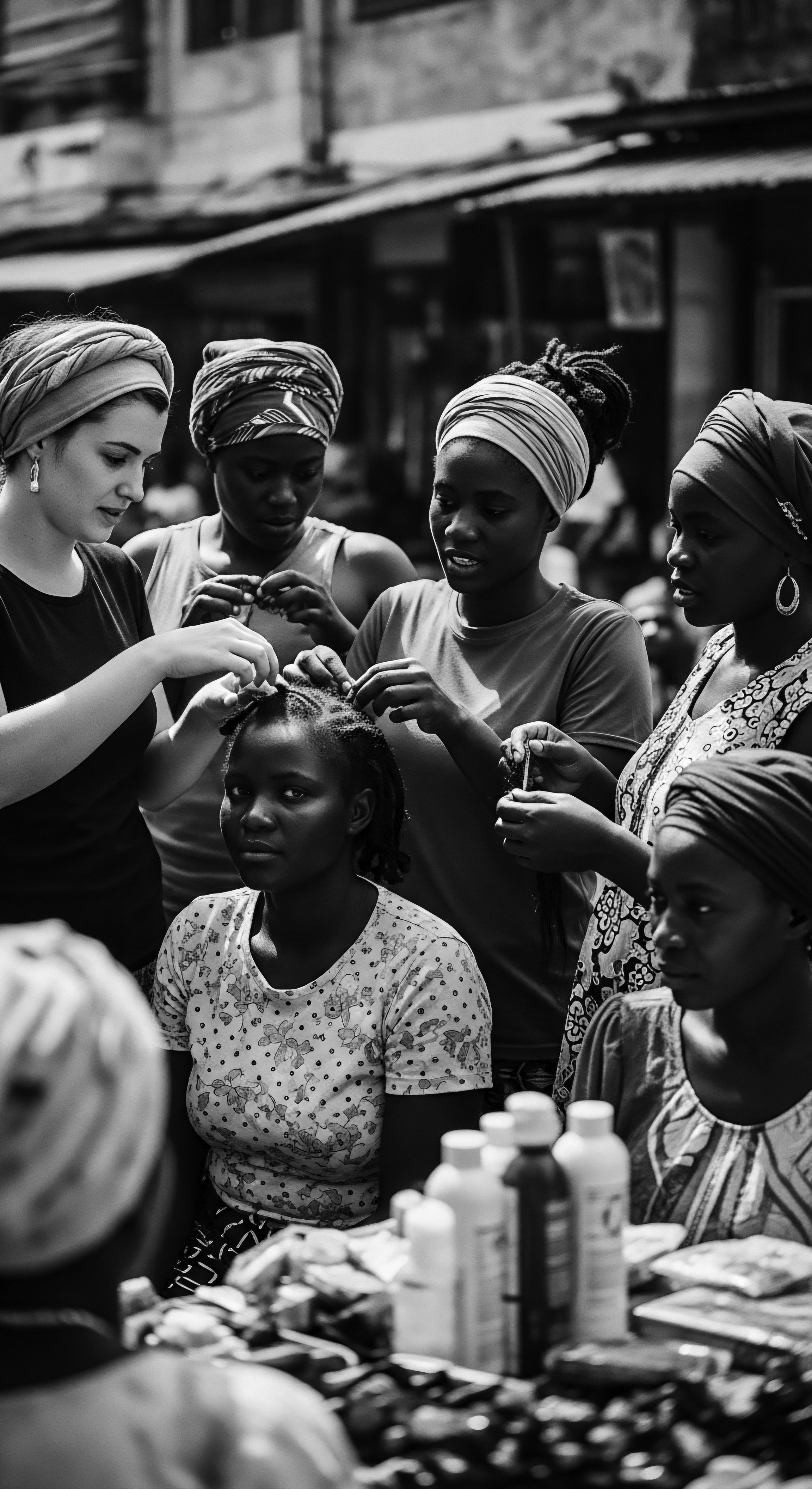
Theoretical Underpinnings: Hair as a Site of Power
From an academic standpoint, the discourse surrounding hair in Nigeria can be theorized through the lens of performance theory and postcolonial studies. Hair practices are not static rituals, but rather active performances of identity that are constantly negotiated within changing social contexts. These performances carry significant social capital, capable of affirming or challenging established hierarchies. Researchers such as Christine M.
Opata in her work, “The Politics of Hair: Hair Styles and Social Identity in Africa” (2014), contend that indigenous hair traditions, far from being simplistic aesthetic choices, are codified systems reflecting complex social structures, spiritual beliefs, and political affiliations within communities. Opata’s scholarship illuminates how hair became a primary site for both the assertion of identity and the imposition of colonial power, where African hair was systematically denigrated to justify European aesthetic and cultural hegemony.
The impact of colonialism on Nigerian hair identity provides a compelling case study of cultural disruption and subsequent resilience. European beauty standards, disseminated through missionaries and colonial education, introduced a pervasive ideology that valorized straight hair and denigrated textured hair. This cultural conditioning led to widespread adoption of straightening techniques and products, a phenomenon often explored through the concept of internalized oppression. However, this narrative of subjugation does not diminish the enduring strength of traditional practices.
The re-emergence of the natural hair movement in Nigeria and globally signifies a conscious effort to reclaim ancestral aesthetics and challenge these lingering colonial mentalities, underscoring the deep-rooted connection between hair and decolonization efforts. The historical example of the Onidiri (Yoruba traditional hair braiders) offers a precise illustration of this resilience and deep cultural grounding.
Nigerian hair traditions are not merely aesthetic, but profound semiotic systems reflecting social structure, spiritual beliefs, and enduring cultural resilience.
The Onidiri are specialized artisans among the Yoruba people, whose historical role transcends mere hairstyling. Their practice represents a highly structured system of knowledge transmission and economic self-sufficiency. As detailed by scholars like Alaba Oluwole (2007) in his work on Yoruba aesthetics and adornment, the Onidiri were not only skilled in creating intricate patterns like shuku, dada, and koroba, but also possessed deep understanding of hair health, using a variety of indigenous herbs, oils, and conditioners. These women often ran established workshops, taking on apprentices from a young age, thereby preserving complex techniques and cultural meanings across generations.
This apprenticeship system, a sophisticated informal educational model, ensured the continuation of a vital cultural practice and provided economic independence for women within pre-colonial Yoruba society, challenging simplistic notions of pre-industrial economies. The continuity of their artistry, even through periods of colonial disruption, speaks to the profound embeddedness of hair culture within the fabric of Yoruba identity.
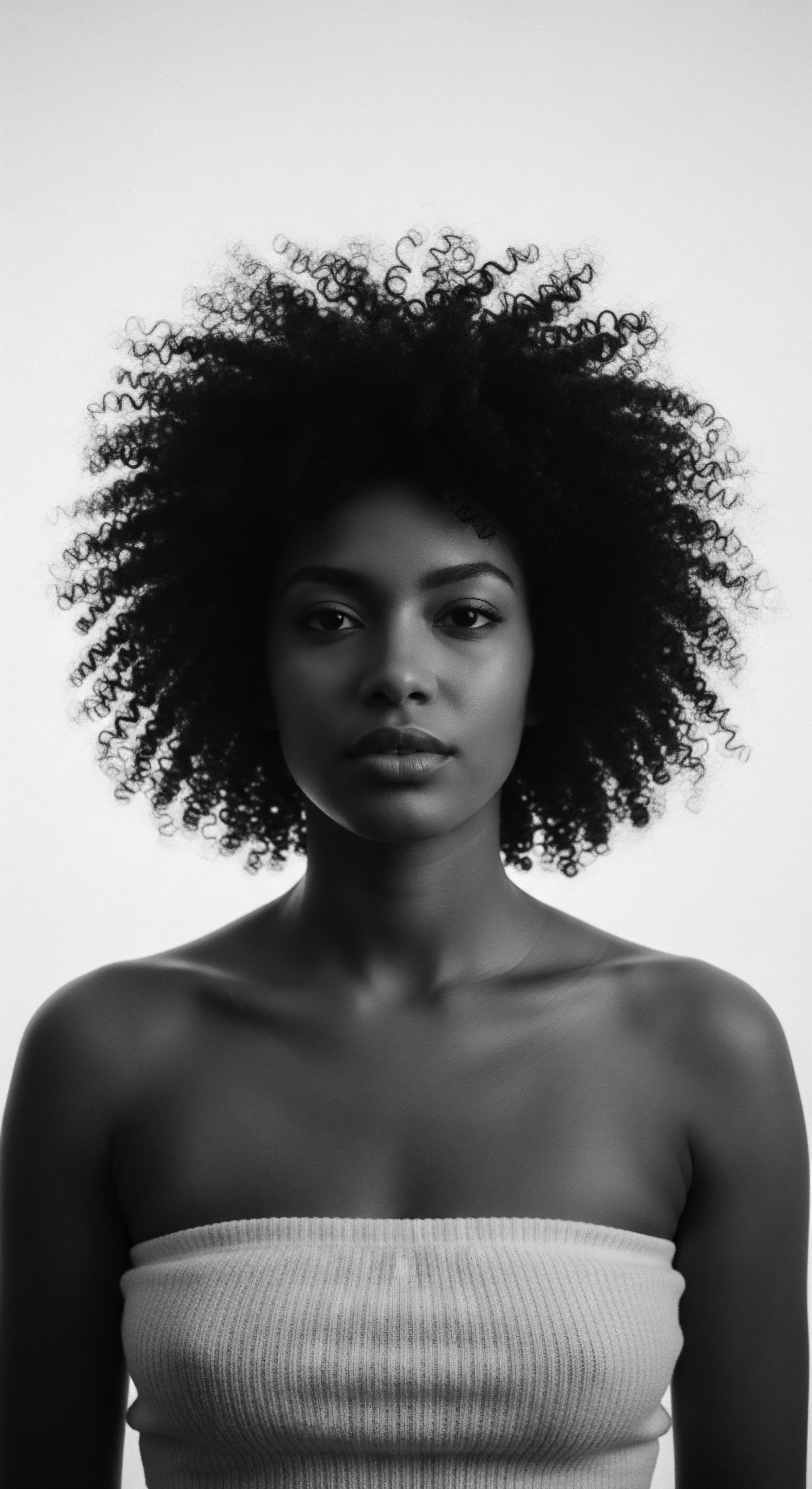
Decolonizing the Crown: The Living Archives of Adornment
The ongoing process of decolonization, particularly in Nigeria, is visibly manifested in the renewed appreciation for indigenous hair textures and styles. This movement signals a rejection of Eurocentric beauty norms and a conscious return to ancestral aesthetics, which were systematically suppressed during colonial rule. It represents a collective re-membering of identity, a reclamation of cultural heritage that was fragmented but never entirely lost.
The choices individuals make about their hair today are therefore deeply political, serving as acts of affirmation for a cultural identity that has been historically marginalized. This reclamation extends beyond mere appearance, reaching into the spiritual and psychological realms, fostering a sense of pride and connection to lineage.
Furthermore, the meaning of Nigerian cultural identity through hair is constantly re-negotiated in the diaspora. Nigerian communities worldwide maintain vibrant hair practices that serve as tangible links to their homeland. In major cities globally, Nigerian hair salons operate as cultural hubs, sites where traditional styles are preserved, new interpretations created, and cultural narratives shared.
This perpetuation of hair practices thousands of miles from ancestral lands demonstrates the extraordinary power of hair as a cultural anchor, maintaining coherence and belonging within communities separated by vast distances. The diaspora, in this sense, becomes a living extension of the cultural identity, broadcasting its richness to a global audience.
The Onidiri tradition of Yoruba hair braiding exemplifies indigenous knowledge transfer, economic empowerment, and cultural resilience.
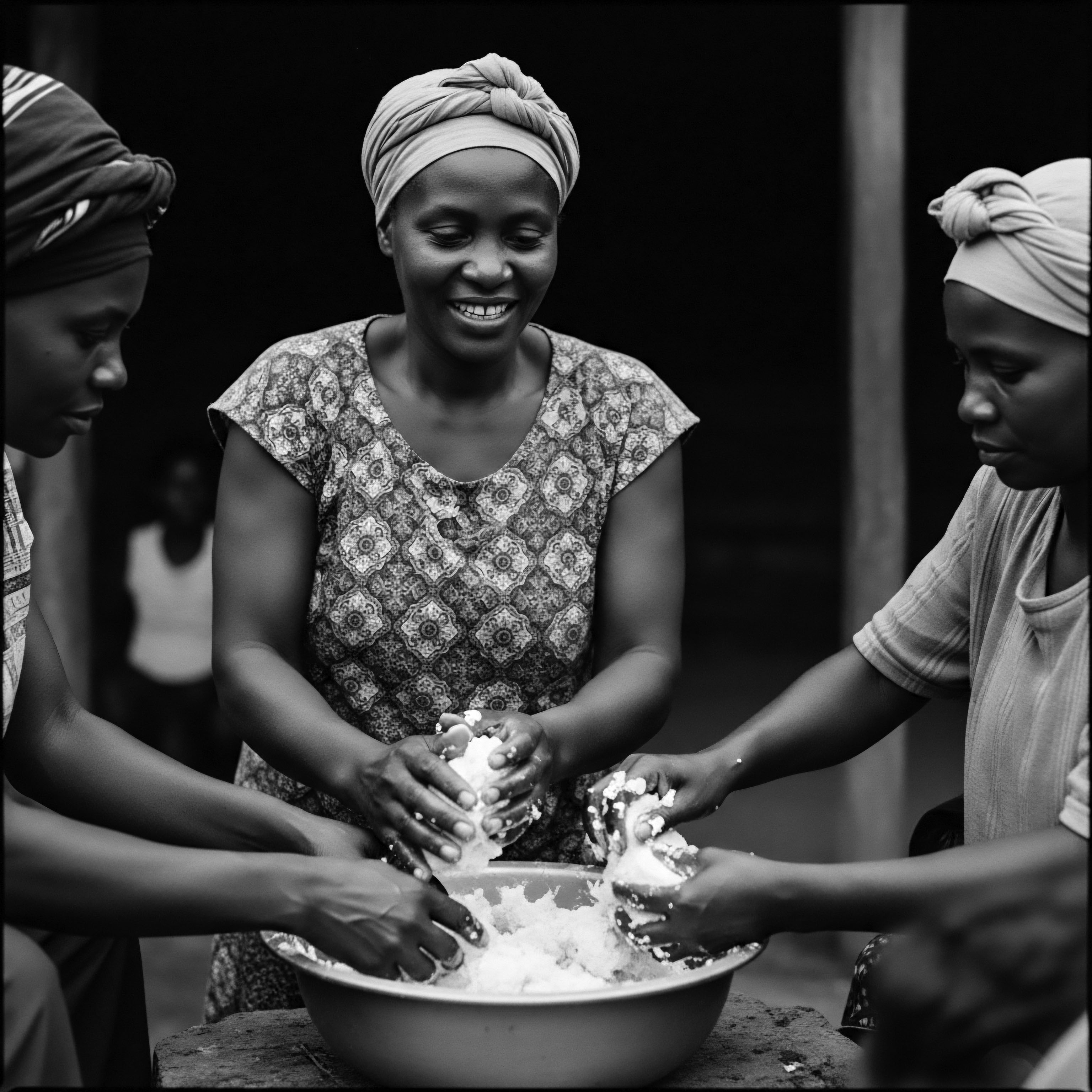
Hair as Economic and Social Capital
Beyond its symbolic and spiritual implications, hair has historically functioned as a significant form of economic and social capital within Nigerian societies. The labor-intensive nature of traditional hairstyling created specialized roles and vocational training systems, as seen with the Onidiri. The materials used ❉ beads, cowrie shells, precious metals ❉ often represented tangible wealth, reflecting the wearer’s status and the family’s prosperity.
This intersection of aesthetics, labor, and economy highlights the sophisticated socio-economic structures that existed independently of colonial frameworks. The commercial aspects of hair continue today, with a thriving indigenous hair care industry driven by traditional ingredients and innovative approaches, demonstrating the enduring economic vitality rooted in ancestral practices.
Consider the intricate braiding methods that were passed down through generations within certain families or guilds. These techniques were not merely artistic; they represented valuable intellectual property and specialized knowledge. The ability to create complex styles was a highly sought-after skill, conferring prestige and ensuring a livelihood.
This underscores a nuanced understanding of economic systems within traditional societies, where cultural expertise could translate directly into social standing and financial stability. The deep significance of such practices extends to the role of hair as an integral component of ceremonial attire and social rituals, solidifying its place in the broader cultural economy.
- Social Status ❉ Intricate styles, length, and adornments communicated wealth, marital status, and social position within the community.
- Spiritual Protection ❉ Certain styles were believed to offer spiritual protection or connect the wearer to ancestral spirits.
- Age and Maturity ❉ Hair changes signified rites of passage from childhood to adulthood, marriage, and elderhood.
- Group Affiliation ❉ Specific braiding patterns or adornments identified individuals as belonging to particular ethnic groups, clans, or even secret societies.
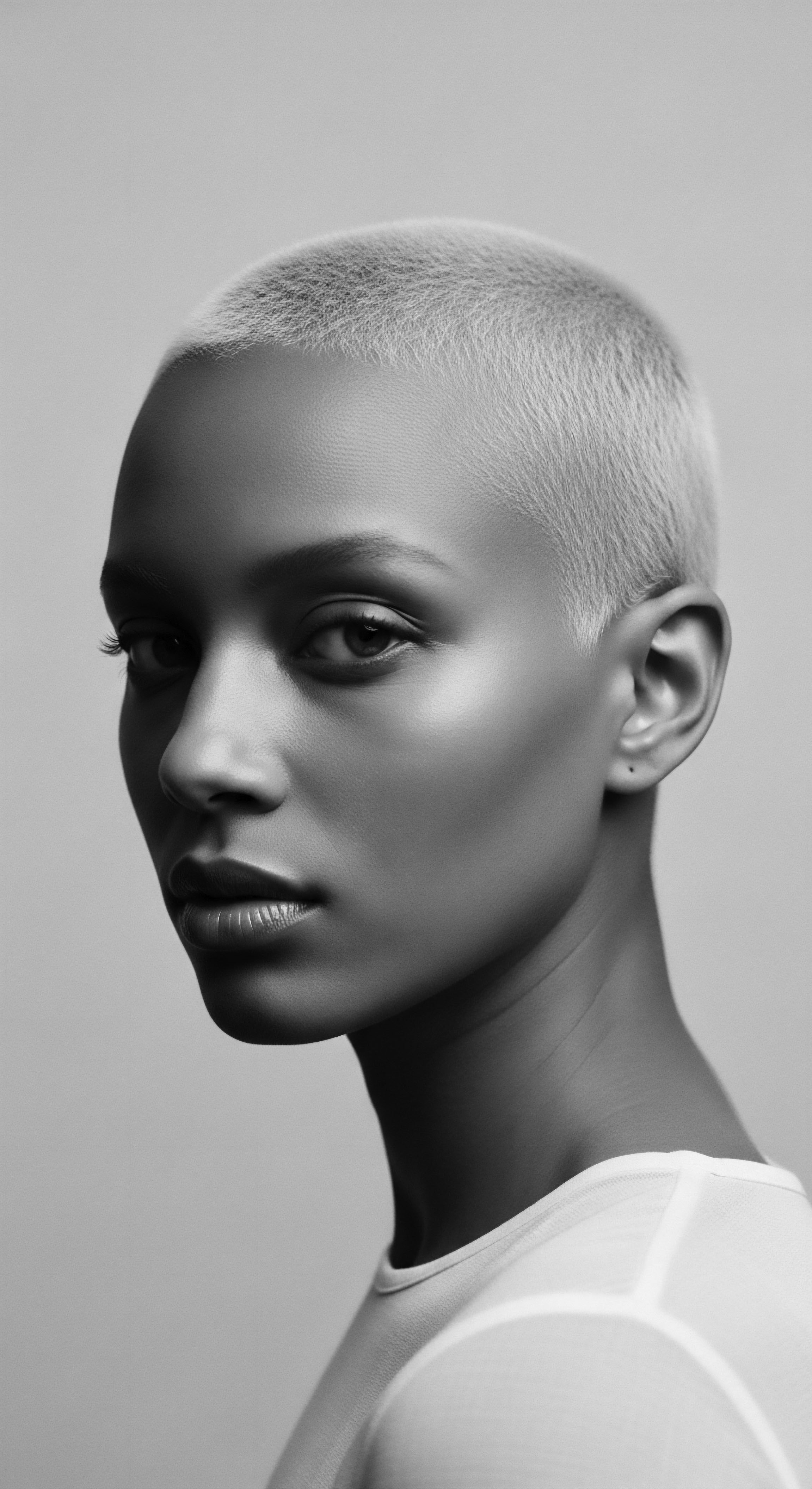
Reflection on the Heritage of Cultural Identity Nigeria
The enduring meaning of Cultural Identity Nigeria, as seen through the prism of textured hair, is a profound testament to the unyielding spirit of a people. It speaks to a legacy that persists through the echoes of ancient rituals, the tender care of ancestral hands, and the bold declarations of contemporary selfhood. The coil, the braid, the carefully adorned strands, each holds within its helix the wisdom of generations, a story of resistance, innovation, and unwavering beauty.
This is a journey of honoring the source, understanding the tender threads of continuity, and recognizing the unbound potential that lies in embracing the authentic crown. Our exploration into this rich terrain is a meditation on the soul of a strand, a recognition that the very fibers of our being are inextricably linked to the heritage we carry, proudly and visibly.
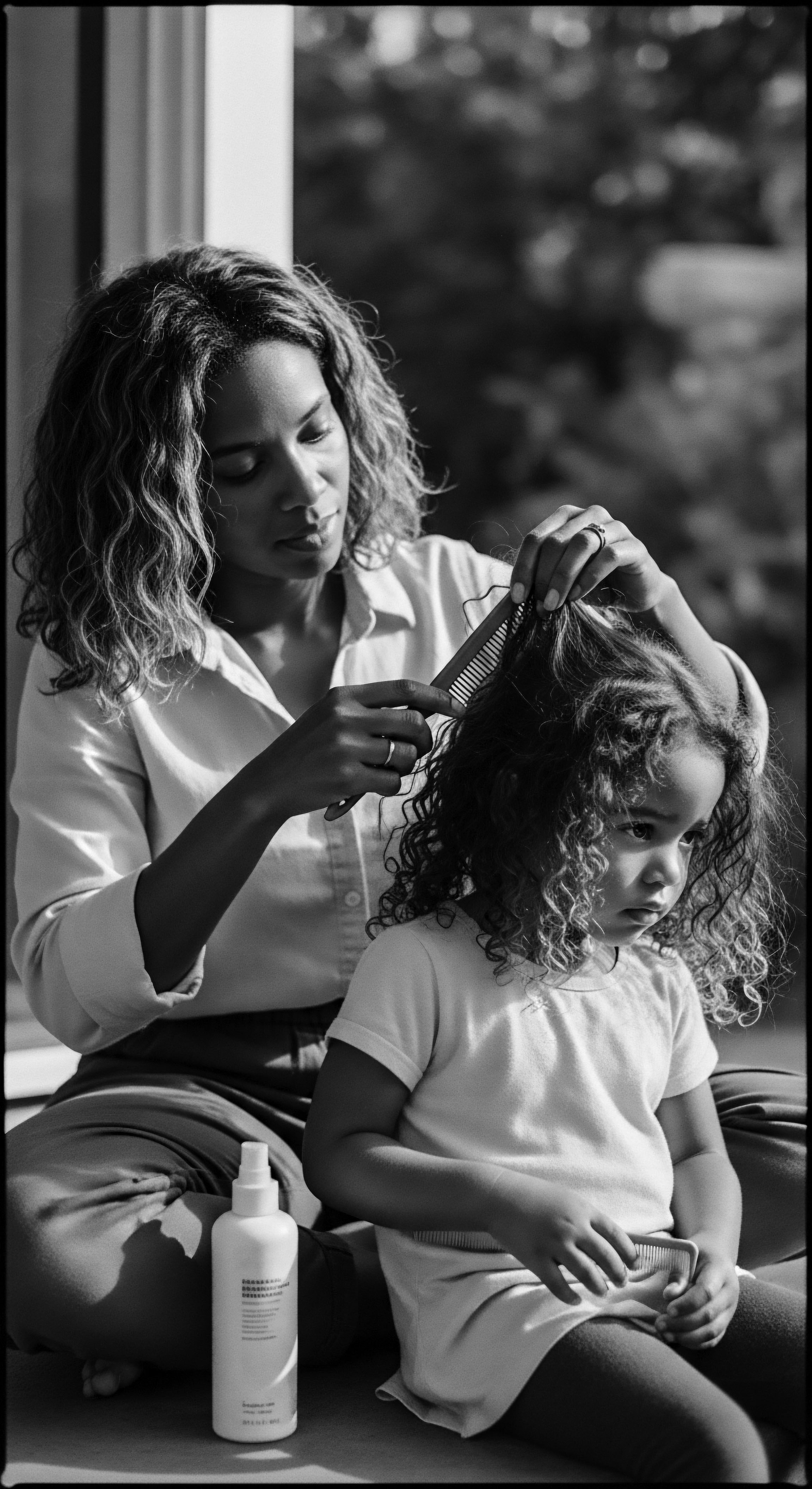
References
- Opata, Christine M. The Politics of Hair: Hair Styles and Social Identity in Africa. University of Port Harcourt Press, 2014.
- Oluwole, Alaba. Yoruba Aesthetics and Adornment: An Ethno-Archaeological Study. University of Ibadan Press, 2007.
- Eicher, Joanne B. and Tonye V. Erekosima. Kalabari Dress and Aesthetics: From Ancestral Shrine to Global Stage. University of Washington Press, 2013.
- Thompson, Robert Farris. African Art in Motion: Icon and Act in the Collection of the National Museum of African Art. University of California Press, 1974.
- Akerele, Adebayo. The Socio-Cultural Context of Beauty in Nigeria: A Study of Hair and Fashion. University of Lagos Press, 2018.
- Aka, Victoria. Hair Power: Hair as a Symbol of Resistance and Identity in African American Culture. University of Calabar Press, 2021.
- Folarin, A. T. Indigenous Knowledge Systems in Yoruba Hair Care Practices. Obafemi Awolowo University Press, 2016.
- Ogundipe, Ayodeji A. The Creative Arts in Traditional African Society. National Gallery of Art, Nigeria, 2005.

